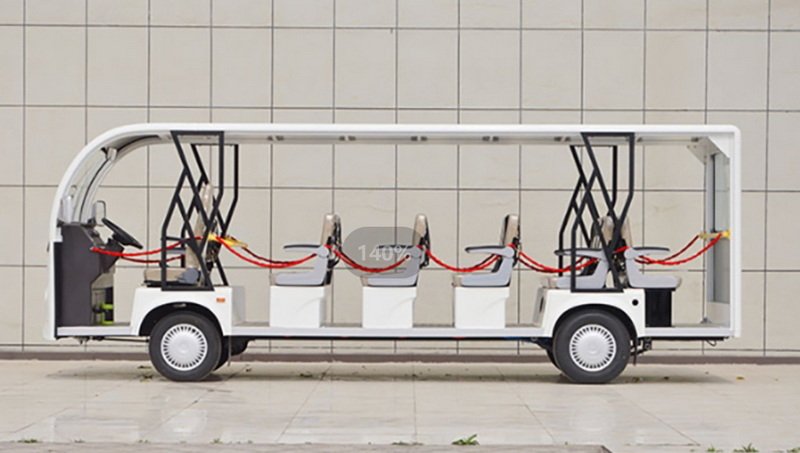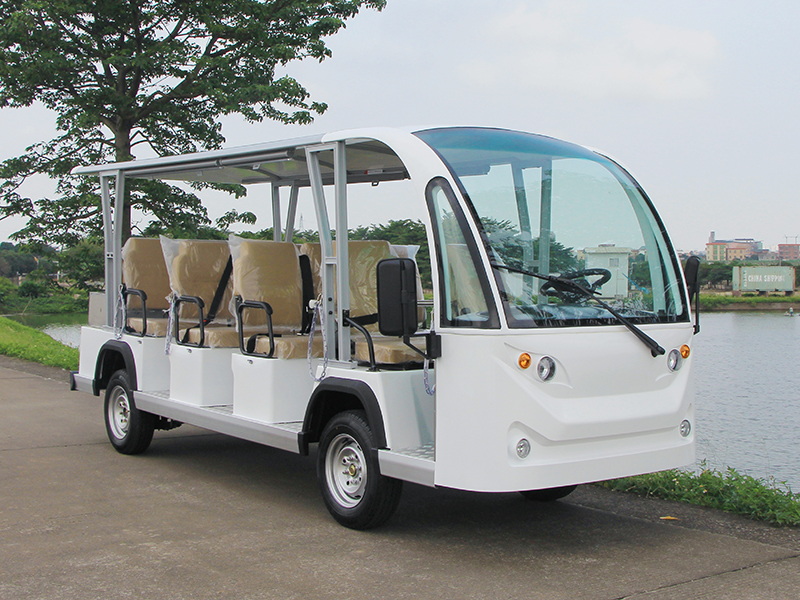Content Menu
● Leading Electric Tourist Bus Manufacturing Companies
>> 1. LangQing Electric Vehicle (EV)
>> 2. Yutong Bus
>> 3. BYD Motors
>> 4. Solaris Bus & Coach
>> 5. Ankai Electric Bus
>> 6. Higer Bus Company Limited
● Why Choose Electric Tourist Buses?
● Key Features to Look for in an Electric Tourist Bus Manufacturer
● Manufacturing Process of Electric Tourist Buses
● Innovations in Electric Tourist Bus Manufacturing
● Conclusion
● Frequently Asked Questions (FAQ)
>> 1. What are the advantages of electric tourist buses over diesel buses?
>> 2. Which companies are the top manufacturers of electric tourist buses?
>> 3. How long does it take to charge an electric tourist bus?
>> 4. Can electric tourist buses handle long-distance routes?
>> 5. What maintenance is required for electric tourist buses?
As the world moves towards sustainable transportation, electric tourist buses have become a popular choice for fleet operators aiming to reduce emissions and enhance passenger comfort. Choosing the right electric tourist bus manufacturing company is crucial for ensuring quality, reliability, and advanced technology. This article explores the top manufacturers, their innovations, and what to consider when selecting an electric tourist bus for your fleet.

Leading Electric Tourist Bus Manufacturing Companies
1. LangQing Electric Vehicle (EV)
LangQing EV is a highly experienced manufacturer specializing in a wide range of electric vehicles, including electric sightseeing carts, electric golf carts, electric mini trucks, and more. With over 24 years of manufacturing experience, LangQing has developed a strong reputation for quality and customization. Their ISO-certified factory employs a professional and experienced team capable of meeting diverse and customized needs.
LangQing offers comprehensive OEM and ODM services, allowing clients to customize vehicle design, branding, and features to perfectly suit their fleet requirements. Their electric sightseeing carts are ideal for resorts, parks, campuses, and golf courses, with seating options ranging from 2 to 8 seats and specialized models like food carts and ambulance carts. Serving customers in over 50 countries, LangQing combines advanced engineering, patented chassis design, and a customer-centric approach to deliver reliable, durable, and stylish electric vehicles.
Key highlights of LangQing EV include:
- 24 years of manufacturing experience with strict quality management.
- Patented chassis design for enhanced durability.
- OEM and ODM customization services.
- Wide product range including electric sightseeing carts designed for tourism.
- Global service network and long-term supply commitments.
- Extensive experience working with international hotels, resorts, and communities.
2. Yutong Bus
Yutong is a global leader in new energy buses, including electric tourist coaches. With over 30,000 annual sales and more than 170,000 new energy vehicles delivered, Yutong offers a wide range of electric buses tailored to different needs. Their expertise in core new energy vehicle technologies allows them to provide customized E-Bus and E-Coach solutions, including hybrid and battery electric vehicles.
Yutong's electric tourist buses are known for their long-range capabilities, advanced battery management systems, and passenger-centric design. They also provide comprehensive after-sales support, including training and maintenance services, which is crucial for fleet operators.
3. BYD Motors
BYD is renowned worldwide for its electric vehicle innovation. Their K-series electric buses use proprietary lithium iron phosphate battery technology, ensuring durability and safety. BYD's extensive experience in electric buses makes them a top choice for sustainable public transport and tourist fleets.
BYD's electric tourist buses come equipped with intelligent energy management systems and fast-charging capabilities, allowing operators to maximize uptime. The company also invests heavily in research and development, continuously improving battery life and vehicle performance.
4. Solaris Bus & Coach
Based in Poland, Solaris is a leading European producer of electric and hydrogen buses. Their Urbino 12 electric bus won the prestigious "Bus of the Year" award in 2017. Solaris focuses on low- and zero-emission vehicles, supporting cities in their transition to sustainable transport.
Solaris buses are praised for their modular design, allowing customization of interior layouts, battery sizes, and charging options. This flexibility makes Solaris a strong contender for tourist operators who require specific configurations for sightseeing tours.
5. Ankai Electric Bus
Ankai offers high-end electric double-decker sightseeing buses, combining luxury and eco-friendliness. Their 12-meter electric double-decker is designed specifically for tourist applications, providing a premium experience with zero emissions.
Ankai's buses feature panoramic windows, spacious seating, and advanced climate control systems, ideal for sightseeing under various weather conditions. Their electric powertrains are optimized for smooth acceleration and quiet operation, enhancing the passenger experience.
6. Higer Bus Company Limited
Higer is an international bus supplier from China, manufacturing electric buses, tourist coaches, city buses, and special vehicles. Their electric tourist buses are designed for comfort and sustainability, serving various global markets.
Higer emphasizes robust build quality and cost-effective solutions, making their electric buses attractive for operators seeking reliable vehicles with competitive pricing. Their after-sales network supports fleet operators with maintenance and spare parts availability worldwide.

Why Choose Electric Tourist Buses?
Electric tourist buses offer numerous benefits over traditional diesel models:
- Zero emissions contribute to cleaner air and reduced carbon footprint.
- Lower operating costs due to reduced fuel and maintenance expenses.
- Quieter operation enhances passenger comfort and reduces noise pollution.
- Advanced technology often includes smart connectivity and enhanced safety features.
- Government incentives and regulations increasingly favor electric vehicles, often providing subsidies or tax benefits to operators who invest in electric fleets.
These advantages make electric buses an ideal choice for tourism companies, city tours, and eco-conscious operators looking to future-proof their fleets.
Key Features to Look for in an Electric Tourist Bus Manufacturer
When selecting an electric tourist bus manufacturing company, consider these critical factors:
- Battery Technology: Look for manufacturers using advanced, safe, and long-lasting battery systems, such as lithium iron phosphate batteries, which offer improved thermal stability and longer lifecycle compared to traditional lithium-ion batteries.
- Range and Charging: Ensure the bus can cover your typical routes on a single charge and supports fast or opportunity charging. Some manufacturers offer modular battery packs allowing range extension if needed.
- Passenger Comfort: Features like air conditioning, panoramic windows, ergonomic seating, and smooth ride quality are essential for tourist buses. Additionally, onboard entertainment systems and Wi-Fi connectivity enhance the tourist experience.
- Safety Systems: Modern electric buses should include advanced driver assistance systems (ADAS), emergency braking, lane departure warnings, and passenger safety features such as seat belts and CCTV monitoring.
- Customization Options: A good manufacturer offers tailored solutions to meet your fleet's specific requirements, including vehicle length, seating capacity, interior design, and accessibility features like wheelchair ramps.
- After-Sales Service: Reliable maintenance, spare parts availability, and technical support are vital for fleet uptime. Look for manufacturers with established global service networks and training programs.
- Sustainability Practices: Consider companies that implement eco-friendly manufacturing processes and use recyclable materials, aligning with your company's green values.
Manufacturing Process of Electric Tourist Buses
The manufacturing process of electric tourist buses involves several sophisticated steps that ensure the final product meets safety, performance, and comfort standards:
1. Design and Engineering: Using computer-aided design (CAD) and simulation tools, manufacturers optimize the bus's aerodynamics, structural integrity, and passenger comfort. This phase involves extensive testing of materials and components to ensure durability and safety.
2. Battery Integration: High-capacity battery packs are installed with sophisticated thermal management systems to maintain optimal operating temperatures, which prolong battery life and improve safety.
3. Electric Motor Assembly: Efficient electric motors and power electronics are fitted, providing smooth acceleration and regenerative braking capabilities that recover energy during deceleration.
4. Chassis and Body Construction: The chassis and body are constructed using lightweight, corrosion-resistant materials such as aluminum alloys and composites to reduce overall weight and increase energy efficiency.
5. Interior Fitting: Seats, lighting, infotainment systems, climate control, and safety features are installed with attention to ergonomics and passenger experience.
6. Quality Control: Each bus undergoes rigorous testing, including road trials, safety inspections, and performance evaluations before delivery to ensure reliability and compliance with international standards.
This meticulous manufacturing process is essential to produce electric tourist buses capable of meeting the demanding requirements of modern tourism fleets.
Innovations in Electric Tourist Bus Manufacturing
The electric tourist bus industry is rapidly evolving, with manufacturers incorporating cutting-edge technologies to improve efficiency, safety, and passenger experience:
- Smart Connectivity: Many manufacturers integrate Internet of Things (IoT) solutions that enable real-time vehicle monitoring, predictive maintenance, and fleet management. This connectivity helps operators optimize routes, reduce downtime, and improve operational efficiency.
- Energy Efficiency: Innovations such as regenerative braking systems, lightweight materials, and improved aerodynamics contribute to longer driving ranges and reduced energy consumption.
- Sustainability: Leading companies adopt eco-friendly manufacturing practices, including the use of recyclable materials and renewable energy sources in production facilities.
- Hybrid Solutions: Some manufacturers offer hybrid electric buses that combine battery power with other energy sources like hydrogen fuel cells or range extenders, providing flexibility and extended range for longer routes.
- Advanced Safety Features: Integration of advanced driver assistance systems (ADAS), including collision avoidance, adaptive cruise control, and 360-degree cameras, enhances safety for both passengers and pedestrians.
- Passenger Experience Enhancements: Features such as panoramic glass roofs, customizable ambient lighting, noise reduction technologies, and onboard multimedia systems create a more enjoyable and memorable tour experience.
These innovations demonstrate the commitment of top electric tourist bus manufacturing companies to delivering vehicles that meet the evolving needs of operators and passengers alike.
Conclusion
Choosing the best electric tourist bus manufacturing company requires careful evaluation of technology, experience, and service capabilities. Leading manufacturers like LangQing EV, Yutong, BYD, Solaris, Ankai, and Higer offer innovative, reliable, and eco-friendly electric buses designed to meet the demands of modern tourism fleets. Investing in electric tourist buses not only supports environmental goals but also enhances passenger experience and operational efficiency.
By focusing on critical factors such as battery technology, range, passenger comfort, safety, and after-sales support, fleet operators can select the ideal partner to help transition to sustainable and profitable electric transportation. The future of tourism is electric, and with the right manufacturer, your fleet can lead the way.

Frequently Asked Questions (FAQ)
1. What are the advantages of electric tourist buses over diesel buses?
Electric tourist buses produce zero emissions, operate quietly, have lower fuel and maintenance costs, and often feature advanced technology for passenger comfort and safety. They also help operators comply with increasingly strict environmental regulations.
2. Which companies are the top manufacturers of electric tourist buses?
Top manufacturers include LangQing EV, Yutong, BYD, Solaris Bus & Coach, Ankai, and Higer Bus Company Limited. These companies lead in innovation, quality, and global market presence, offering a variety of electric tourist bus models.
3. How long does it take to charge an electric tourist bus?
Charging times vary depending on battery capacity and charger type. Fast chargers can replenish batteries in 1-3 hours, while standard chargers may take 6-8 hours or overnight. Some manufacturers offer opportunity charging options to extend operational hours.
4. Can electric tourist buses handle long-distance routes?
Modern electric tourist buses have ranges typically between 150 to 300 kilometers per charge, suitable for most city tours and regional routes. Hybrid models are available for extended range requirements.
5. What maintenance is required for electric tourist buses?
Electric buses require less frequent maintenance than diesel buses, focusing mainly on battery health, electric motor systems, and software updates. Regular inspections ensure safety and performance, and predictive maintenance via smart connectivity can reduce downtime.










































